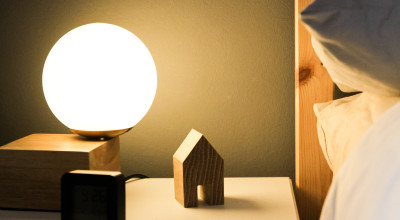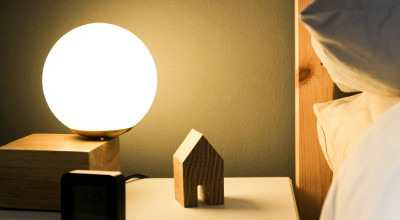5 Sleep Tips to Improve Your Mental Health
December 17th, 2019
Anyone suffering from a mental health problem like anxiety or depression knows how hard it can be to get quality sleep. But did you know that sleep deprivation can make it more difficult to cope with mental disorders? Poor-quality sleep can zap your energy, kill your mood, and otherwise worsen mental health concerns.
The good news is that improving your sleep can have a very positive effect on your mental health and will make it easier for you to maintain a healthy lifestyle. If this sounds too good to be true, try out these five easy ways to sleep better and see what a difference it makes in your life.
Buy a New Mattress
It’s not always obvious that a mattress is the culprit behind poor-quality sleep. If you’ve had your mattress for a long time, you may have become accustomed to the discomfort it creates. But Thrive Global explains anold mattress can harm your sleep more than you may think! Consider treating yourself to a new bed that supports your body in all the right ways.
Before mattress shopping, take some time to learn about different types of mattresses and your preferred sleep styles. For example, memory foam mattresses come in a variety of foam types and styles—including soft, firm, single-sided, and flippable. Since memory foam mattresses are available at a wide range of price points, you’re bound to find a bed within your budget.
Transform Your Bedroom into a Sleep Den
Getting a new mattress isn’t the only way to improve your sleep environment. To set yourbedroom up for a good sleep, Fast Company recommends getting blackout shades or a comfortable eye mask since even small amounts of light from outside can disrupt your sleep. Strive to keep your bedroom as quiet as possible with the help of a sound machine or earplugs.
Temperature is also important to consider in your bedroom since our bodies need cooler temperatures to trigger sleep onset. Invest in a fan to keep the fresh air flowing and stick to natural,breathable materialsfor your bedding and pajamas so they won’t trap heat.
Get on a Regular Sleep Schedule
Inconsistentsleep schedules can confuse and disrupt our internal body clocks—these clocks play an important role in making us feel sleepy at night and awake during the day. On the other hand, going to bed and waking up at the same time every day will help you sync up your schedule with your internal clock, so you’re not fighting against it to fall asleep or get up in the morning. If you’re having trouble sticking to a regular bedtime, try setting an evening alarm. When this alarm goes off, drop everything you’re doing and start preparing for bed.
Practice a Bedtime Routine
A good bedtime routine is an excellent way to tell your brain it’s time to start winding down for sleep. Take a hot bath, make a light snack, do a gentle yoga routine, go for a walk, or read a good book. Try some relaxation techniques like guided meditation and progressive muscle relaxation to banish stress. If you’re having trouble with negative or intrusive thoughts when your head hits the pillow, try listening to a podcast to keep your mind occupied while you drift off. Sometimes simply changing your focus can be enough to help you drift off.
Go Outside First Thing in the Morning
If you have a hard time getting out of bed in the morning, even after a full night of sleep, you may benefit by going outside right away. Exposing yourself tobright sunlight immediately after waking will help your brain turn off the production of sleep hormones that can otherwise leave you feeling groggy and disoriented. This is a great time to fit in your exercise for the day. Taking a half-hour walk first thing in the morning is an amazing way to start your day full of energy.
While you may not be able to fall asleep at the drop of a hat or wake up brimming with energy every morning, you can take steps to improve your sleep quality over time. Since everyone is different, it’s important to try different techniques until you find what works for you. Improving your bedroom environment, keeping your sleep schedule consistent, and engaging in healthy lifestyle habits can do a lot to transform sleepless nights into restful slumbers.


